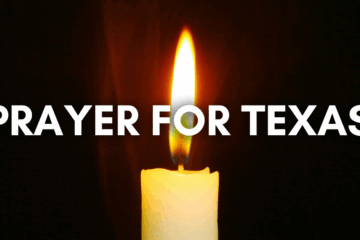Ode i. Christ is born! Glorify Him! * Christ is come from heaven! Go and meet Him! * Christ is on earth! Arise to Him! * Sing to the Lord, all you inhabitants of earth, and all you peoples, praise Him, * and with merriment extol Him who is glorified! [GOASD]
Ode iii.* To the Son, begotten from the Father unchangingly before the ages, * and now becoming incarnate from the Virgin without seed; * to Christ God let us cry aloud, * “You have exalted the horn of our strength. * Only You are holy, O Lord!” [GOASD]
Ode iv. A rod has come forth from Jesse’s root, * and You its flower grew from it, praiseworthy Christ, now born of the Virgin, * whom Habakkuk called Paran, shady, thickly wooded mountain. * From her who knew no man You came incarnate, O immaterial God. * Glory to Your strength, O Lord! [GOASD]
Ode v. O God of peace and Father of mercies, * You have sent to us the Wonderful Counselor, * the Angel of Your great counsel, granting us peace. * And now to light of knowledge of God we have been guided, * and we rise from night to dawn and glorify You, O benevolent Lord. [GOASD]
Ode vi. Jonah long ago * was hurled from the belly of the whale as he went in, like a newborn babe. * With the Virgin now, * when the Logos had dwelt in His Mother’s womb, * taking flesh, He then emerged, preserving her intact.* Yielding not to changeability, * He preserved her unaltered in childbirth. [GOASD]
Ode vii. Brought up together piously, the Servants * with contempt regarded the impious king’s decree. * The threat of the furnace did not frighten them. * Rather, standing in the midst of flames, they prayed and sang, * “Blessed are You, O Lord God of our fathers!” [GOASD]
Ode viii. We praise and we bless and we worship the Lord.
Babylon’s bedewing furnace bore the image of an extraordinary wonder. * For it did not burn the youths it was holding, * nor did the fire of Divinity consume the Virgin’s womb wherein it went. * And so let us songfully extol and praise, * “Let all creation bless the Lord, sing a hymn to Him, * and exalt Him beyond measure unto all the ages.”
Ode ix.
O my soul, magnify the woman who is higher in honor and in glory than the armies of heaven.
I see here a new and paradoxical mystery. * For the cave resembles heaven, * the Virgin, the cherubic throne, * the manger, a grand space, * in which He whom nothing can contain was laid, Christ our God; * whom we extol in song and magnify.
* The Second Ode is usually omitted, being of penitential character.
These hymns are sung during the Matins service and represent a collection of profound theological reflections on the Incarnation of the Son of God.
The term katavasia (from the Greek word meaning “to descend”) refers to hymns sung at the end of each Ode of the Canon during Matins or other services. Traditionally, the choir or chanters “descend” from their kliros (choir stalls) to sing these hymns together. Katavasias summarize the themes of the Odes and are often chanted in a more festive or prominent manner.
The Katavasias of the Nativity draw their inspiration from the Canon of the Nativity, a poetic and theological composition primarily attributed to St. Cosmas of Maiuma. These hymns encapsulate the mystery of the Incarnation—God becoming man for the salvation of humanity—and highlight themes of divine love, humility, and the fulfillment of Old Testament prophecies.



0 Comments